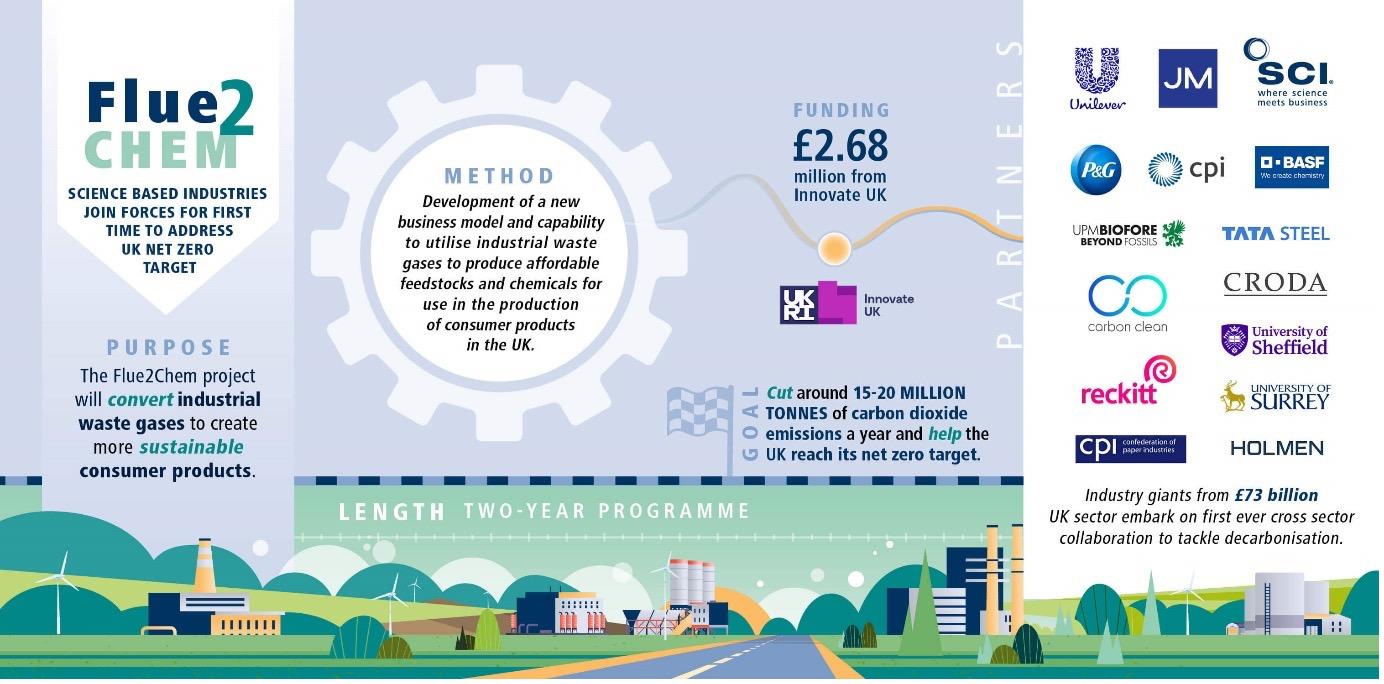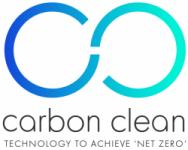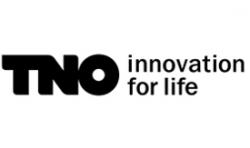Partner news: Carbon Clean joins Flue2Chem project to convert industrial waste gases into more sustainable consumer products

NEWEST-CCUS project partner Carbon Clean is joining forces with industry giants, including BASF, Tata Steel and Unilever, to demonstrate the value of carbon capture to the consumer products sector. The Flue2Chem project aims to transform the sustainability of the UK’s consumer products industry by developing a new value chain using captured CO2.
Carbon Clean is a global leader in carbon capture solutions for hard-to-abate industries such as cement, steel, refineries, energy from waste and biogas. It will be deploying its fully modular CycloneCC carbon capture technology to capture 10 tons per day of CO2 from three industrial sites – at Holmen, Tata Steel and UPM – as part of the Flue2Chem project.
The two-year project is receiving £2.68 million of grant funding from Innovate UK’s Transforming Foundation Industries (TFI) Challenge and is expected to demonstrate how the conversion of captured CO2 into sustainable materials for consumer products could save 15-20 million tonnes of CO2 emissions a year in the UK.
Commenting on the project, James Hall, Head of Research at Carbon Clean, said: “Deploying our carbon capture technology in foundation industries, such as metals, glass, paper and chemicals, will generate a vital source of CO2for the UK consumer products industry. It’s a great example of the circular carbon economy in action – transforming captured carbon into affordable raw materials for consumer products.”
Carbon Clean has a vision to deliver industrial decarbonisation on a gigatonne scale, the company expects to see its technology capture 1 billion tonnes of CO2 by the mid-2030s. Its proven technology is already operating across 49 sites globally and it is working with leading industrial companies, including Chevron, CEMEX and Veolia. Its fully modular technology will be central to a new era that will see dramatic reductions in the cost and space requirements for industrial carbon capture deployment.
Other recent projects include the completion of Front End Engineering Design services for the Acorn Project’s carbon capture plant at the St Fergus gas terminal complex in Scotland. By reusing existing gas pipelines, Acorn will transport the captured CO2 from the gas terminal stacks to be permanently stored offshore, with annual storage volumes anticipated to grow to 5-10 million tones per year of CO2 by 2030. The CCS network created through the Acorn Project has the potential to be one of the largest operating CCS projects in the world, transporting and storing captured CO2 from emitters across Scotland, the UK and Europe.
Carbon Clean is also working to deliver a groundbreaking carbon capture project at CEMEX’s Rüdersdorf plant in Germany. Its CycloneCC technology will capture 100 tonnes of CO2 per day at the plant, which will be combined with green hydrogen to produce synthetic hydrocarbons that can be used in other industries.
Last year, it announced the start of carbon capture at an NTPC power station in India, a carbon capture pilot on a gas turbine in San Joaquin Valley, California with Chevron, and a first milestone for its joint venture with Veolia in India.
The company is expanding rapidly, having closed a $150m Series C round in May last year and doubling its headcount in 2022. More project announcements are expected imminently from across various industrial sectors including the Waste-to-Energy sector.
Graphic Credit: SCI (The Society of Chemical Industry)









